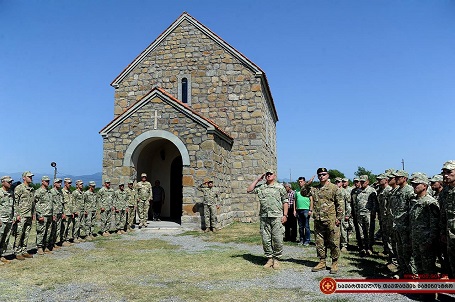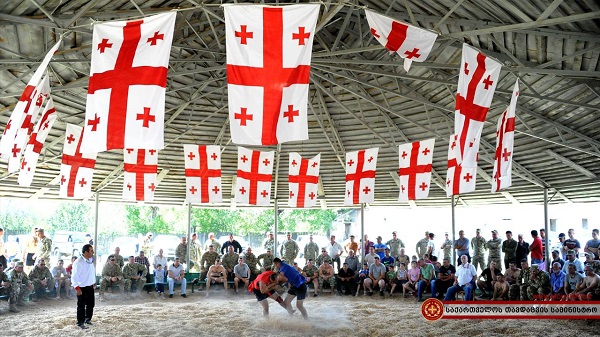Shindisi Battle: Georgia commemorates heroes of August War 2008

Georgia is today commemorating a group of heroes of the Russia-Georgia war who heroically sacrificed their lives in a ‘David and Goliath’ type battle that took place in Shindisi Village, just outside capital Tbilisi.
The Shindisi Battle took place on August 11, 2008.
On this day eight years ago a 17-member detachment of Georgian soldiers came face-to-face with Russian soldiers in Shindisi Village. The Russians greatly outnumbered the Georgian side and advised the Georgians to surrender, but they refused.
The uneven battle continued for several hours.
Despite being greatly outnumbered, Georgia inflicted significant damage on their enemy. Almost every Georgian soldier died in fight and when only two remained, they chose to blow themselves up rather than become hostages.
I am standing in this place which is very tragic and at the same time very glorious for every Georgian. The heroism of the 17 soldiers even surprised and excited the enemy. I bow before their souls, before their families,” said Georgia’s Minister of Defence Levan Izoria after he lay a wreath at the memorial honouring the Shindisi heroes.

Wrestling competition dedicated to the fallen soldiers of the Shindisi Battle. Photo by the Ministry of Defence.
Future generations should know about the Shindisi story as it is the history of future which makes our country immortal,” the Minister added.
Also today the Ministry of Defence held a wrestling competition in Shindisi involving 50 soldiers from Georgia’s Armed Forces, which was dedicated to the memory of the fallen heroes.
The Russia-Georgia war began on August 8, 2008 and lasted five days. After the armed conflict 228 Georgian civilians, 170 soldiers and 14 police officers had lost their lives.
The war displaced 192,000 people in Georgia. Many were able to return to their homes after the war but as of May 2014, more than 20,200 people remain displaced.
 Tweet
Tweet  Share
Share